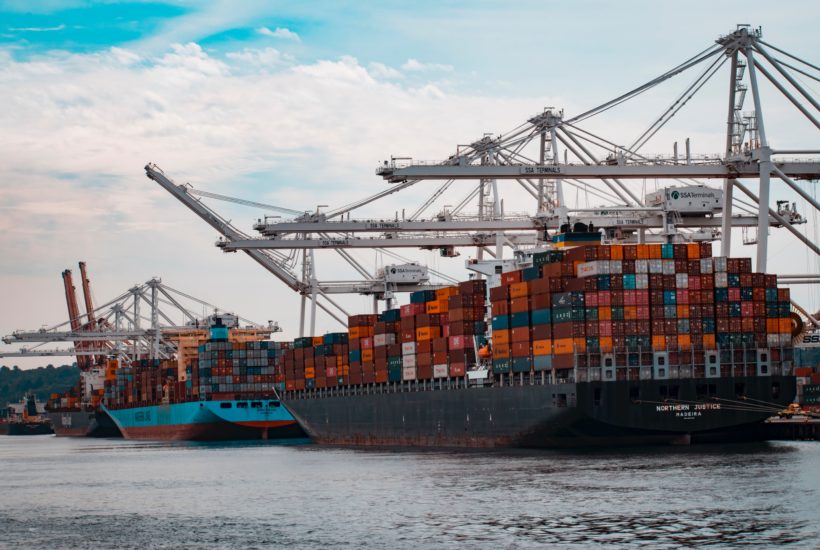Africa
New Control System of Industrial Products Imports in Morocco
The Ministry of Industry, Trade, Green Economy and Digital held, July 12th, a meeting with representatives of structures involved in the operation of the new system of control of industrial products to the import, the Administration of Customs and Indirect Taxes, and the approved agencies. The three parties have formed an ad-hoc committee to implement targeted actions for specific imports.

Good news for manufacturers and hoteliers! Following the progress observed in the deployment of the new system of control of industrial products at the import, set up by the Ministry of Industry, Trade and Green and Digital Economy, the supervisory authority, the Association of Authorized Customs Forwarders in Morocco (ATADM), and the Administration of Customs and Indirect Taxes decided to set up an ad-hoc committee to implement targeted actions aimed at specific imports, including industrial inputs and products intended for investment projects or hotels. Why are these imports targeted in particular? What is at stake? Since the establishment of this device, the objectives have not changed: it is to fight against fraud and reduce transit times.
The Ministry explained that “contrary to some information published on social networks, the new system of control of industrial products to import aims to fight against fraud by ensuring compliance of products to consumer safety criteria, while significantly reducing import delays.”
The objective is also to gain in efficiency, insofar as this device requires certain industrial products to submit to control in their countries of origin, and implies, logically, to work with operators having a presence at the global level. This prevents products with poor quality and/or safety standards or products that present a risk for the consumer and the environment from being found on Moroccan territory. This saves the country dry losses in foreign currency, and the importer a considerable financial burden, related to the costs of non-conforming goods that he has already had to pay in addition to the costs of storage and demurrage that he is forced to take charge of.
Read more on the subject and find the latest economic news from around the world with the Born2Invest mobile app.
Reduction of delays
According to the Ministry, the results of this system to date are very promising, since the audits conducted by the Ministry indicate a significant reduction in fraud and delays. The average time for transmitting control results has dropped from 3.73 days to only 1.24, while the average time for scheduling physical visits has decreased from 1.85 days to 0.93. Recall that the implementation of this system is part of a complete overhaul of the existing system, with the key to the dematerialization of control that has led to better coordination between the authorities involved, traceability of interventions and the structuring of rules to ensure fairness between economic operators.
A satisfaction rate exceeding 90%
The deployment of the new system of control of industrial products to the import is going well. A year and a half after its implementation, it shows a satisfaction rate exceeding 90%. “More than 92% of import control operations are processed without a hitch by the new system,” said Noureddine Lahmamssi, president of the Association of Customs Brokers in Morocco (ATADM), during the follow-up meeting on its deployment, held on July 12. Like ATADEM, other organizations are pleased with the progress made. These include the Administration of Customs and Indirect Taxes, as well as organizations approved for import control of industrial products.
What happens to the inspection bodies?
Following a call for expressions of interest, to carry out the control of imports, three inspection bodies were selected in 2020, namely Applus Fomento, Bureau Veritas, and TUV Rheiland. It should be said that this model is not unique to Morocco. It was developed on the basis of a study involving international experts and a benchmark conducted with several countries, demonstrating agility and innovation in supporting the growth of their business operations. It should also be noted that the information system on which the new control model is based is managed exclusively by the Ministry’s central services in consultation with its regional offices.
The three above-mentioned organizations, therefore, do not have access to it. This system works with algorithms that, as in any structured control policy, are based on risk analysis and historical data. It generates instructions for the inspection bodies on the approach to be taken while ensuring the traceability of these operations. To ensure that the system is working properly, teams from the Ministry monitor the organizations on a daily basis, at the regional and central levels. Their work has resulted in the suspension of one agency in 2020 and a second in 2021. The rest of the Ministry’s teams, previously involved in import control, have been redeployed to strengthen local market surveillance. In Order No. 1468-21 of May 27, 2021, the Minister of Industry, Trade, and Green and Digital Economy granted approval to the conformity assessment body “SGS MAROC S.A.” for services provided in the global network and at Moroccan border crossings.
__
(Featured image by Andy Li via Unsplash)
DISCLAIMER: This article was written by a third party contributor and does not reflect the opinion of Born2Invest, its management, staff or its associates. Please review our disclaimer for more information.
This article may include forward-looking statements. These forward-looking statements generally are identified by the words “believe,” “project,” “estimate,” “become,” “plan,” “will,” and similar expressions. These forward-looking statements involve known and unknown risks as well as uncertainties, including those discussed in the following cautionary statements and elsewhere in this article and on this site. Although the Company may believe that its expectations are based on reasonable assumptions, the actual results that the Company may achieve may differ materially from any forward-looking statements, which reflect the opinions of the management of the Company only as of the date hereof. Additionally, please make sure to read these important disclosures.
First published in LesEco.ma, a third-party contributor translated and adapted the article from the original. In case of discrepancy, the original will prevail.
Although we made reasonable efforts to provide accurate translations, some parts may be incorrect. Born2Invest assumes no responsibility for errors, omissions or ambiguities in the translations provided on this website. Any person or entity relying on translated content does so at their own risk. Born2Invest is not responsible for losses caused by such reliance on the accuracy or reliability of translated information. If you wish to report an error or inaccuracy in the translation, we encourage you to contact us.

-

 Markets5 days ago
Markets5 days agoCoffee Prices Decline Amid Rising Supply and Mixed Harvest Outlooks
-

 Crypto2 weeks ago
Crypto2 weeks agoBitcoin Recovers After U.S. Strikes Iran, While Altcoins Face Sharp Losses
-

 Crypto1 day ago
Crypto1 day agoCaution Prevails as Bitcoin Nears All-Time High
-

 Africa1 week ago
Africa1 week agoMorocco’s Wheat Dependency Persists Despite Improved Harvest












